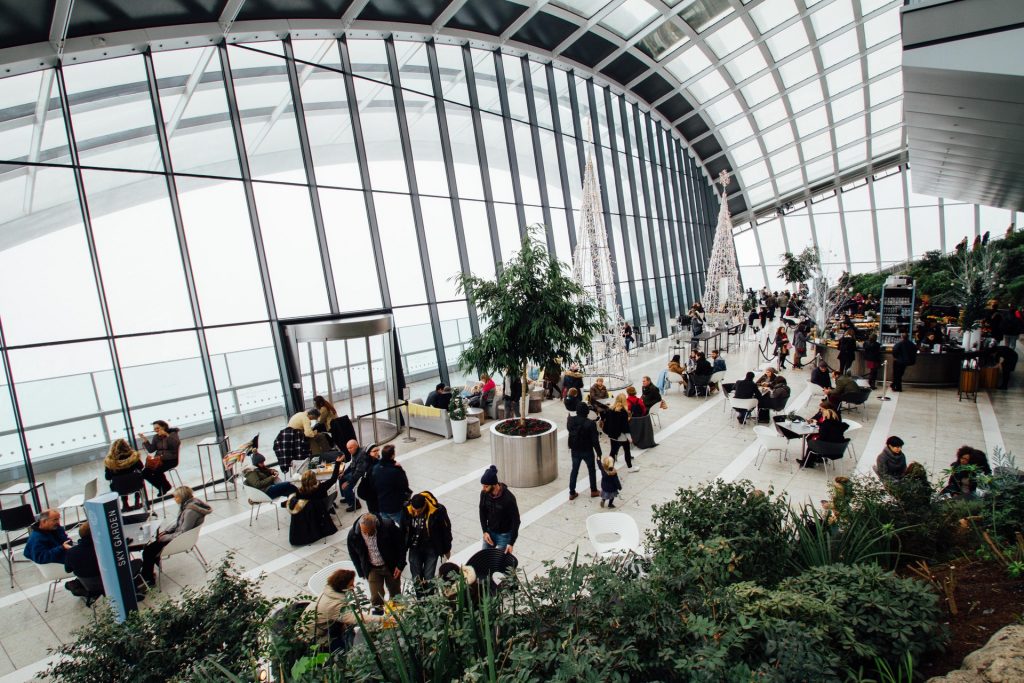Air travel is the fastest means of transportation. But it is as convenient as it is stressful. If you want to travel by air, there are certain tips you can use to make your travel stress-free and comfortable. For a start, here are 7 things to keep in mind when next you visit an airport:
1. Refreshment
Food and drinks at the airport restaurants are very expensive. While waiting for your plane to leave, you may get hungry. It’s best to come with a snack when you visit an airport. It satisfies you and saves you money.
2. Rush hour
Monday mornings and Thursday afternoons are very busy times at the airport. You may want to avoid that. If you have to visit an airport and travel at those times, then it would be wise to build plenty of time into your schedule.
3. Airport lounges
At the airport, you may want to relax and avoid the crowd. There are airport lounges for that—just get into one and enjoy the amenities. If you visit an airport frequently, you may want to sign up for a reward program and enjoy a free stay in the lounge.
4. Security
Getting advance security approval through the TSA process will save you time. Just get in line, go through the process, and in a little time, you’ll be approved. If you frequently visit an airport, having TSA pre-approval can make security checks much faster and more convenient.
5. Boarding
If you are traveling with a bag, you should try to get into the plane as soon as you can to be able to put your bag in the overhead compartment. This is necessary as the overhead compartment gets filled quickly, especially when many passengers visit an airport with carry-on luggage.
6. Make transportation plans
You do not want to deplane and start figuring out your transport. Booking a fast-break limousine service is a terrific idea. You will save yourself a lot of stress and time. Contact us.
What Not to Do at the Airport
On the flip-side, these are mistakes to avoid:
1. Do not scan your identity documents
This is for us the number one mistake not to make.
Identity card, passport, driving license… What if you lose your luggage or your wallet?
It is essential to scan all of your identity documents and have them on your phone in order to prove your identity. It’s really important to have them in your emails as well. Because if you lose or have your phone stolen, you’ll still be able to log in from a computer in the country in which you are to have access to your identity papers.
Additionally, if you plan to visit an airport, having digital copies of your documents can be extremely helpful in case of any unforeseen issues with your physical IDs.
It’s the same for prescriptions. If you need specific medication, be sure to scan your prescription. You never know, it can always be useful if you made a mistake in your calculation when you left, but also for a plane cancellation that you had not planned, when you forgot your first aid kit in your previous accommodation, or even when you visit an airport and need to provide proof of your medication.
We recommend you use Google Drive, which will allow you to access all your documents via your phone, computer, and tablet.
2. Having an overly ambitious itinerary
Be flexible; don’t be afraid to change your plans because of time or lack of money. Be aware of the time it takes to get from “A” to “B” (not by distance, but by means of travel: car, bus, train, etc.).
Take into account the extra time for possible delays as well as the extra time to rest. If you have a layover or a long journey, consider taking the opportunity to visit an airport and explore its amenities. Remember, you don’t have to see the whole country in one visit.
3. Do not consider the different time zones when booking
Pay attention to the different time zones between places “A” and “B,” how long it takes to get there, and how many time zones you cross. Take this into account when planning your reservations. When you visit an airport, make sure to check the local time and adjust your schedule accordingly.
Also, think about the possible effects of jet lag in your first few days, or better yet, learn how to avoid jet lag.
4. Do not look at flight/car/hotel comparisons
Many sites offer to compare prices between different airlines, car rental companies, and even hotels. But if you had to remember just one, it would be Skyscanner. This website has many functions to prepare for your trip. Whether you’re planning to visit an airport or searching for the best travel deals, you can ask it to find you all the cheapest plane tickets on a given date. Or conversely, tell it a destination, and it will find you the best dates to leave while spending as little as possible.
5. Booking flights with a short stopover
Allow yourself at least a few hours between flights to take into account any possible delay scenarios (flight delay, long customs wait, long distance between terminals, etc.).
6. Not checking your documents and reservations
Check your documents and reservations for everything related to hotels, flights, trains, buses, etc. Always synchronize the time and place and make sure they are correctly scheduled. Also, check that your name is spelled correctly on your flight booking.
7. Take too much business
Take only what you need, not what you think you are going to use. Buy the rest at your destination (possibly cheaper). When fully packed, take a look at everything you have and try to reduce the load a bit more. Before your trip, visit an airport to get a sense of baggage limits and travel essentials.
8. Do not take travel insurance
It might seem like a ridiculous extra expense, but travel is all about an adventure into the unknown. And you never know what can happen along the way. You can break a leg, lose a camera, have to leave a country because of a natural disaster.
Travel insurance protects you when you’re abroad and shouldn’t be avoided — it’s the smartest thing to do. It’s there to protect you from medical and non-medical emergencies.
If something happens to you and you don’t have insurance, it could cost thousands of dollars.
9. Eat near a tourist site
Food near any tourist attraction will cost double the price and half the flavor of what you find elsewhere. When restaurants know people aren’t coming back, they don’t have to worry about consistent quality.
However, local and non-touristy restaurants must be of high quality, otherwise, locals will stop going. Instead of eating in a tourist trap, feel free to walk a few hundred yards more. The further away you are, the more local, cheaper, and tastier the food will be.
Avoid restaurants with brilliant menus in multiple languages. Also, avoid restaurants where a waiter approaches you to invite you to eat at their place. These are sometimes signs of a tourist trap. If you’re looking for an alternative, visit an airport, where you can find a mix of local and international dining options with better quality control.
If you are not comfortable walking into a random restaurant, you can also use the TripAdvisor travel app. People have posted reviews and ratings so you can determine what’s good on the menu or if the restaurant is worth a visit.
Another great way to find local restaurants is to walk into hostels and ask them what is good. Even if you don’t stay there, they are a wealth of information and will usually be happy to point you in the right direction!
10. Blindly trust the first directions you get from a local
Ask more than one person for directions to the same location.
If the person hesitates or looks up for an answer, please accept their help and seek further help on the next street.
11. Fully rely on the guides
The guides are made to inform your travels, not to define them. Pose the guide and interact with other travelers and people at the destination. Allow yourself to explore and follow your own intuition. There is much more to one place than what is in any guidebook.
12. Forget the budget and run out of money
You should consider your budget as a way to experience the place in a more creative and authentic way, not as a restriction. Create a realistic budget that you can stick to and leave some wiggle room for unforeseen expenses.
13. Not reserving a car service before you arrive
It’s common to postpone your transportation arrangement from the airport to your hotel or Airbnb or other destination in the place you’re traveling to until you arrive. This can create a lot of problems for you. From struggling to find a taxi to exorbitant prices from car service companies you find at the airport.
Frequently Asked Questions
What should I bring when I visit an airport?
When you visit an airport, it’s best to bring essentials like a valid ID, boarding pass, travel documents, a small snack, and a fully charged phone. Packing light and carrying a refillable water bottle can also make your travel experience smoother.
When is the best time to visit an airport to avoid crowds?
The busiest times to visit an airport are Monday mornings and Thursday afternoons. To avoid long lines and delays, consider traveling outside these peak hours or arrive early to navigate security checks with ease.
What are airport lounges, and how can I access them when I visit an airport?
Airport lounges offer a quiet, comfortable space with amenities like Wi-Fi, refreshments, and charging stations. If you frequently visit an airport, joining a lounge membership or using a credit card with lounge access can enhance your travel experience.
How can I speed up security checks when I visit an airport?
To fast-track security when you visit an airport, consider applying for TSA PreCheck or a similar trusted traveler program. This allows you to go through expedited screening, making the process quicker and less stressful.
What transportation options should I plan for before I visit an airport?
Before you visit an airport, arrange transportation to and from the terminal. Booking a car service, shuttle, or rideshare in advance can save time and prevent last-minute stress when you land.




